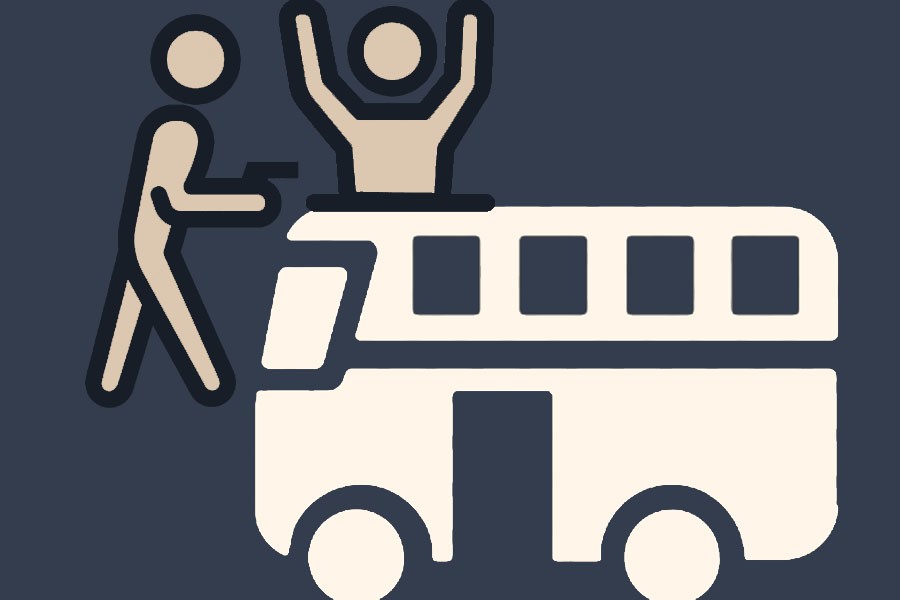True, the incidents of highway robbery are not as frequent as they were before. But it is equally true that those are not a thing of the past. What is noticeable is that the crime stages a comeback in a different form with a gap of sometime. At one time, logs ---often whole tree trunks ---were placed at a particular segment of the Dhaka-Khulna highway to create a barricade before night coaches so that there was a queue of long-distance buses. Then the robbers swooped on the passengers of the buses at the wee hours. If robbery on that highway is no longer reported, Dhaka-Chattogram highway and routes leading to North Bengal and Sylhet from Dhaka are yet to get rid of the scourge. The robbers sometimes masquerade themselves as members of law enforcement agencies to stop vehicles on highways before committing robbery. But one common practice resorted to by the criminals is getting on board the night coaches in the guise of ordinary passengers.
In one such incident on Thursday night, a gang of dacoits took over a bus on Dhaka-Rajshai-Chapai Nawabganj route. A resident physician of a Tangail hospital and his friend, according to a report carried in an English contemporary, were among the unlucky passengers on the bus. What followed immediately after the bus crossed a place called Kamarpara near Uttara is a long ordeal for the doctor in particular. The gang of dacoits sprung from their seats and attacked the passengers all the while brandishing knives as the bus was heading for a secluded spot. They slapped, blindfolded passengers and tied their hands. After the initial stage of the operation, some of the passengers including the doctor's friend were dropped somewhere near Chandra. The doctor surrendered everything he had but he was not released. The bus headed for Dhaka city where his ATM card was used for withdrawal of Tk120,000 from two accounts at different ATM booths.
The operation is more like the action of a Hollywood movie only with the difference that no private detective or members of law enforcement agencies pursued the gangs in order to overpower them. The doctor complained that for almost twelve hours an inter-district bus could move in the city and at its periphery unchallenged. Why? The bus finally came to a stop on Dhaka-Chittagong Highway where the gang left it. Then the helper of the bus untied his blindfold and hands at about 8:30 next morning. Here the unanswered question is if the driver and helper too had their hands tied, how could the latter free himself and come to release the passenger before untying his driver.
From this incident and other such robberies committed before, one thing is clear that highway patrol is inadequate, if not totally absent. In case a crime of such order takes place, highway monitoring centres in advanced countries can keep watch over it by means of close-circuit camera fitted at strategic points. The movement of the bus was suspicious when it headed for a secluded place instead of taking the designated route. Had there been regular highway patrol or sensitive devices to monitor the movement of vehicles at night, there was no way it could escape notice. The need for developing such a system in order to stem both robberies and accidents on roads and highways is, therefore, a priority.


